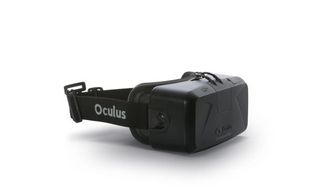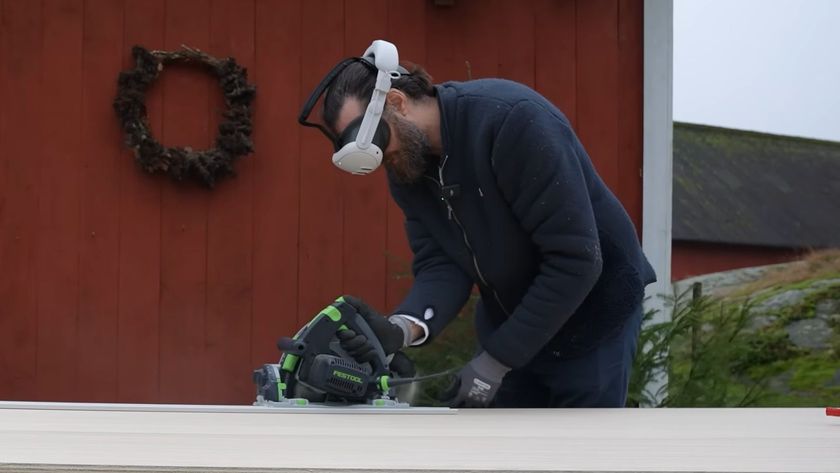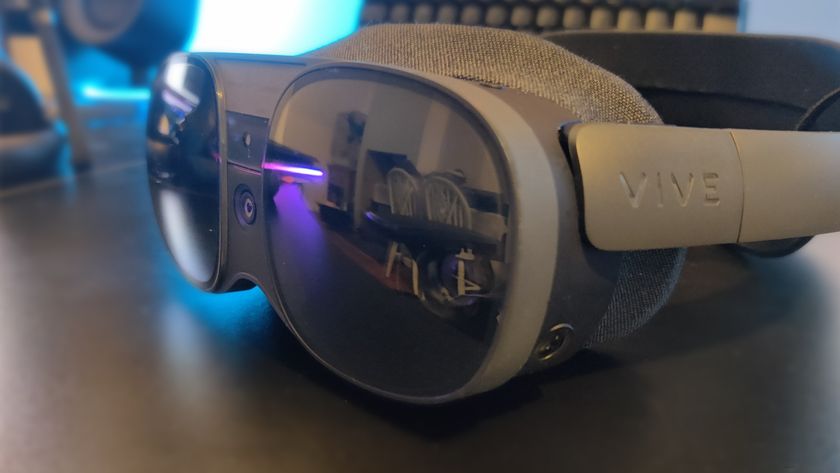Palmer Luckey on DK2 and the future of Oculus Rift

It was a big GDC for Oculus VR, announcing the Dev Kit 2 for pre-order at a very reasonable $350. Shortly before the announcement, we caught up with creator Palmer Luckey about the consumer version of the Oculus Rift, what DK2 represents in terms of technical capabilities and why games using the hardware don't just have to be first-person.
Can you sort of detail the process you've had since the original dev kit was released, and how you got to the point where you are now? How has that been for you?
PL: Through hell and back, and back again. It's been a lot of work. We've been researching and developing what consumer VR needs to be, to be accepted by consumers. And it's a really high bar. Today's technology really can't get there in some ways, and has to be stretched to get there in other ways. But we think we've figured it out. DK2 is a really good step on that path. The consumer version is going to be better in a lot of ways.
Do you have a timeframe for that consumer version?
No time frame to announce. But the good news is that we know what we need to build, we know what components we need to build it. So a lot of it is being accommodating to other people's schedules. We're not a multi-builion dollar company, we don't manufacturer our own displays and sensor hardware. We redesign a lot, and we do build a lot ourselves, but we're dependent on other people's schedules as well.
$350 for the DK2 . That's very reasonable.
I think that's super reasonable for a small run device. We don't plan on making millions of these like we will for the consumer version. We're trying to sell them as cheaply as we can, even if we don't make money on them. Because we want anyone to be able to develop — [with] consumers it's especially true, if a device is not cheap, it may as well not exist for many people. doesn't matter how great it is, they just can't buy it. But even for developers, we want any developer to be able to make VR games. Not just big developers or established indie developers. We want someone who's in his garage and just learning how to make games to buy a Rift and make games for it.
The biggest gaming news, reviews and hardware deals
Keep up to date with the most important stories and the best deals, as picked by the PC Gamer team.
And some people weren't even programmers or developers before they bought a rift. And they bought one and said, “I need to make things. I have ideas I want to make.” and if we hadn't made our dev kit so open, we would have never seen those things. That's the best way to foster innovation on a platform like this, is to get it in as many hands as possible.
To what extent do you see it as a gaming platform vs. something much larger? I like the idea that someone who doesn't play games can go into the Tuscany villa and get that sense of place.
Like a virtual vacation, right.
It sounds kind of bizarre…
It's not that bizarre. I think that non-gaming applications are going to be huge: education, architecture, training, vacations, movie watching… social communication. It's going to be a lot of cool things. I think a lot of the reason why we're seeing such a focus on gaming is that because the people who have the expertise to build 3D environments are game developers. It's not medical hospitals, or vacation planners. It's game developers. I think the technology will get adopted by more industries, and they'll get people who are more experienced in these other niches.

Can you talk a little bit about the two demos you're showing today?
So one of them is the Elemental demo, which we showed off at CES. It shows how you can examine things from multiple angles, lean in, lean out. We thought that was lots of fun. And the other one is Couch Knights, where you're competing against someone else. And you have, kind of like remote control action figures fighting it out. Kind of like Smash Bros. on a table in virtual reality. I wouldn't say it's a great game. It's a great tech demo. But you can imagine a game like that, if it were well balanced with good content, that's something you can't do any other way. And you can see the other person moving around a bit — once people can have full avatar embodiment, you'll be able to feel like you're present in virtual spaces with other people. And I think that's going to be really novel and new, and open up more gameplay innovations.
I feel like the point of one of the demos was to showcase how the rift can give you different experiences outside of first-person experiences.
Because that's how — that was some of the reasoning. The first thing people think of is first person shooters, because they're first-person games. But even games you're playing from a god perspective, or a third-person perspective, like controlling those characters— those are still really fun games. You don't have to build just first person shooters for VR.
One of the things I find in the original dev kit is that, no matter who's trying it, eventually you have to take off the headset, mainly because it gets really warm. Especially if you're wearing headphones. A colleague of mine played Euro Truck Sim 2 and in real-time drove from one country to another with the headset on across a whole afternoon.
You can do that in Europe, can't you? *laughs*
Yeah. And it did kind of burn him out a little bit.
And it will, yeah. DK1 is not nearly as good as DK2, and certainly not as good as the consumer version. A lot of the adaptation that people are going through, and the issues they're having, are not because of the experiences, but because of the hardware. And that is what we need to fix. And we're getting very close. You don't want the hardware to introduce problems — you want the hardware to be transparent. You want it to be like it's not there, so any issues they're having with being burnt out or feeling simulator sickness, you want to all be dependent on the content. And there will be content — like that content? Nobody is going to get ill in that.
DK2 reuses a lot of components from DK1 to save time and money, and we don't plan on that many. We don't want to spend money on new moulding tools that will only be used for a bit by developers. The consumer version is completely redesigned. We are working on integrating audio solutions so you don't have to wear bulky headphones. DK2 really is for developers. It is not for consumers. We don't need consumers to buy it, we don't want consumers to buy it. Because the consumer version is really going to be so much better.
Most Popular







